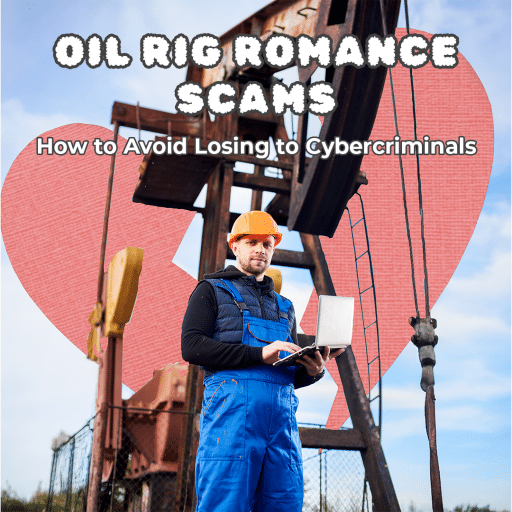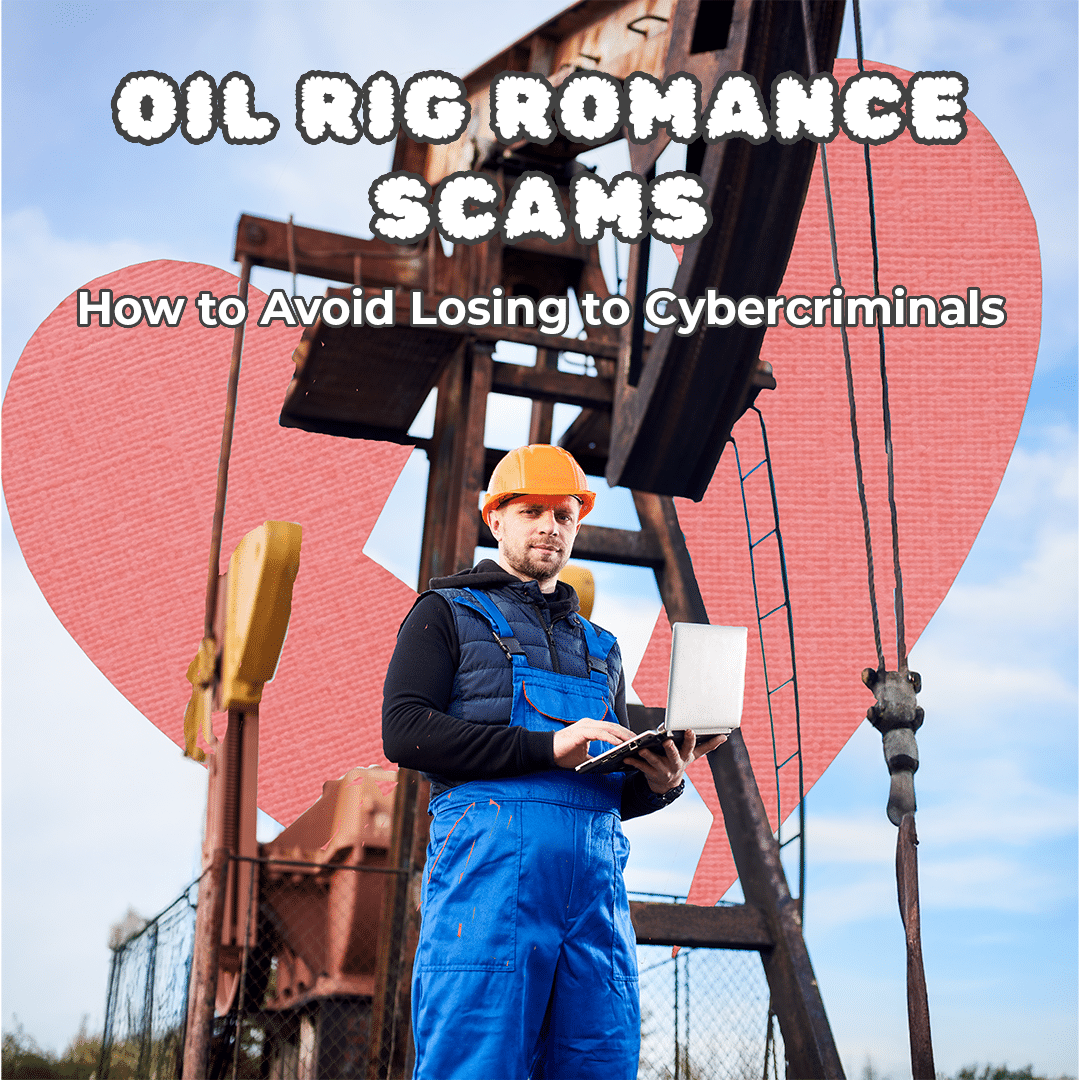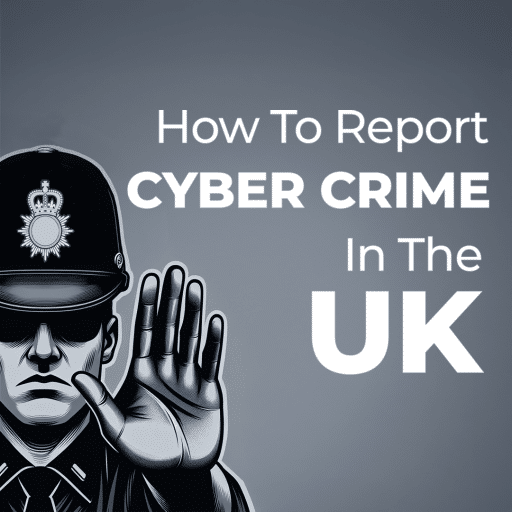Let’s say you’ve met someone online. You have an instant connection, romance, love letters, and sparks are flying. You’re smiling at your phone, in love, and ready to form a relationship that seems to be everything you have ever wanted. Your charming companion and you both start planning when you’ll finally be together, eagerly waiting for that moment when your hearts collide.
Months go by, and things do not unfold as you imagined. The anticipated meet-ups keep getting postponed. The plans are canceled. You cannot video chat with your lover. The oil rig where they work has spotty internet.
If this sounds familiar, you might be in an Oil Rig Romance Scam. It’s one of the many insidious, standard scams out there.
This Is How Oil Rig Romance Scams Work.
Oil Rig Romance Scams are one type of romance scam. They are carefully crafted to manipulate and deceive their victims. The steps in which the scam unfolds make their victims feel trust and an emotional connection to their scammer’s persona.
- The Setup: The scammer initiates contact with the victim through dating apps or social media, presenting themselves as the ideal partner by sharing similar interests and life circumstances. They enhance their credibility by cherry picking curated photos from real profiles or AI-generated images to make their profile appear authentic. Over weeks or months, the scammer invests time in building a relationship, fostering a strong emotional bond. The victim often comes to believe they are in a genuine, close, and intimate relationship, with many even expressing feelings of love.
- The Conflict: As the relationship deepens, the scammer begins to share stories about their challenging job on an oil rig. They describe their worsening circumstances, such as struggling with poor WiFi that limits communication or being unable to afford better food and transportation. These narratives are crafted to evoke sympathy and make the victim feel a sense of responsibility for helping them.
- The Innocent Request: By now, the victim is emotionally attached and deeply invested in the relationship. Rather than asking for money outright, the scammer drops subtle hints or makes indirect requests to elicit financial support. They craft a narrative suggesting that money is the only barrier preventing them from meeting the victim in person. This creates the illusion that with just a little help, they could finally be together, prompting the victim to send funds.
The Real Impact of Oil Rig Dating Scams
According to a 2024 report by the Federal Trade Commission (FTC) (1), of the 70,000 reported romance scam victims, 6% of the victims reported that their scammer used the excuse of being on an oil rig at sea to gain their trust and create a false sense of security.
In a more recent case from 2023, a widow from New York, Jane Cunningham, was scammed by a profile she met on Zoosk. In this case the scammer using the alias of Andrea Manuel claimed he was working on an oil rig off the coast of Texas. Over the course of a year, the scammer was able to extort Cunningham for a grand total of $3 million.
Cunningham’s scammer started small claiming that he need $24,000 to help repair damaged equipment, after getting additional funds from Jane, the scammer boldly extorted her for $2 million for what he claimed to be unpaid taxes. Cunningham is now in litigation working with attorneys to recover the lost funds. The real identity of her scammer has yet to be established. (2)
There is a road to recovery.
Falling victim to a scam can be one of the worst experiences to have, whether it is a romance scam or an attempt at it; the impact can be emotional and financial. If you have been scammed, the journey of recovery may seem impossible, but with the right steps, you can regain control and sovereignty.
Steps victims can take.
- File an initial report with law enforcement: Reporting the incident to the appropriate authorities is a critical first step. Start by filing a complaint with your local law enforcement or police department. While the recovery process may take time, reporting the crime is essential both for your own case and to help prevent others from falling victim to online extortion. You’ll also need to file a complaint with the Federal Trade Commission who will be able to provide next steps for possible disputes of transfers.(3)
- Work with cybersecurity experts. Certain cyber security firms specialize in responding to incidents of online extortion. They can help you secure your accounts and discover the real identity and locations of your scammer.
- Consult with an attorney: If you’ve been a victim of a extortion, it’s important to seek advice from a licensed attorney. Ensure you have gathered solid evidence identifying the scammer, as this will help the attorney assist you in recovering your lost funds.
Let Digital Forensics Corporation Help You Recover.
Using different cyber security and investigation techniques our teams of engineers work to assist victims of different extortion scams recover. When it comes to romance scams, our team will deploy advanced IP tracking and device fingerprinting to unmask the real identity of your scammer.
We do this to ensure that you have the right information to work with law enforcement and other legal professionals. If you believe you are a victim of an of an oil rig dating scam or online extortion, it’s important to act quickly. Gather all relevant information, document your interactions, and seek professional assistance to protect yourself from further harm. To speak with a live member of our team 24/7, click here.
Sources:
- FTC Report Losses to Senior Romance Scams – Federal Trade Commission: https://www.ftc.gov/news-events/data-visualizations/data-spotlight/2023/02/romance-scammers-favorite-lies-exposed
- Story of Oil Rig Romance Scam Victim Jane Cunningham – New York Post: https://nypost.com/2023/11/04/metro/ny-widow-scammed-out-of-3m-by-by-man-she-met-on-zoosk/
- Instructions on reporting fraud to the FTC-Federal Trade Commission: https://reportfraud.ftc.gov/
DISCLAIMER: THIS POST IS FOR INFORMATIONAL PURPOSES ONLY AND IS NOT TO BE CONSIDERED LEGAL ADVICE ON ANY SUBJECT MATTER. DIGITAL FORENSICS CORP. IS NOT A LAWFIRM AND DOES NOT PROVIDE LEGAL ADVICE OR SERVICES. By viewing posts, the reader understands there is no attorney-client relationship, the post should not be used as a substitute for legal advice from a licensed professional attorney, and readers are urged to consult their own legal counsel on any specific legal questions concerning a specific situation.







